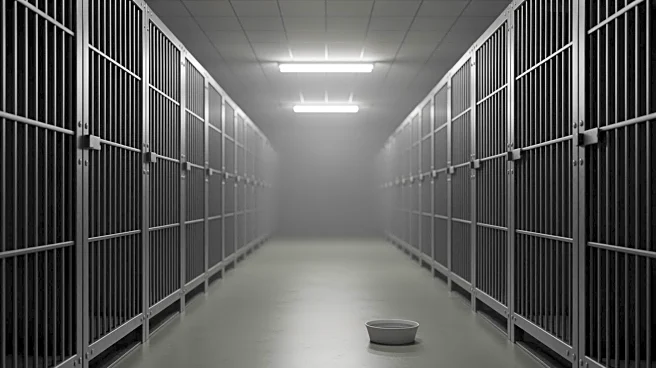What's Happening?
Actor Josh Duhamel has shared insights into his preparations for surviving a potential global catastrophe at his Minnesota retreat, which he refers to as his 'doomsday cabin.' In a recent interview, Duhamel revealed that he feels about 70% ready for an apocalyptic event, acknowledging the need to improve his survival skills, such as hunting and fishing, to ensure a steady food supply. The cabin, built over 15 years, is located in a remote area, offering a lifestyle free from modern distractions. Duhamel lives there with his wife Audra Mari and their son Shepherd, while his older son Axl also spends time at the cabin. The actor emphasizes the importance of returning to basics and maintaining essential skills, rather than solely focusing on doomsday preparedness.
Why It's Important?
Josh Duhamel's approach to living off-grid highlights a growing trend among individuals seeking to disconnect from modern technology and embrace a simpler lifestyle. This movement reflects broader societal concerns about technological dependence and environmental sustainability. By prioritizing self-sufficiency and basic survival skills, Duhamel's lifestyle choice may inspire others to consider similar paths, potentially impacting consumer behavior and real estate trends in rural areas. Additionally, his emphasis on family and community underscores the importance of interpersonal connections in times of uncertainty.
What's Next?
Duhamel's continued development of his Minnesota property may lead to further enhancements in self-sufficiency and sustainability. As he refines his survival skills, he may share his experiences and insights with a wider audience, potentially influencing public perceptions of preparedness and off-grid living. The actor's lifestyle choices could also spark discussions on the balance between technological advancement and traditional skills, prompting individuals and communities to reassess their priorities.
Beyond the Headlines
Duhamel's retreat serves as a personal sanctuary from the rapid advancements in technology, including artificial intelligence, which he finds concerning. This perspective raises ethical and cultural questions about the role of technology in daily life and its impact on human interactions. As society grapples with these issues, Duhamel's approach may encourage a reevaluation of the values associated with technological progress and the importance of maintaining a connection to nature and fundamental skills.









